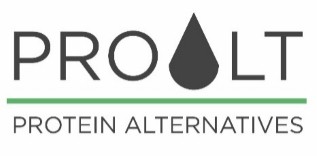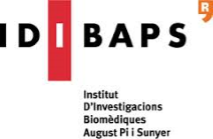Protein Alternatives (PROALT)
ProAlt is the recipient of an SME instrument (Horizon 2020) grant to develop its Project COLODETECT.
Protein Alternatives (ProAlt) is a biotechnological company founded in 2006 and focused on the development and commercialization of biomarker-based assays for cancer diagnosis and clinical management. Its business model covers the different stages in the biomarkers assays chain, including markers identification and validation assay development and clinical validation, assays regulatory approval, and a commercialization strategy combining direct sales with partnerships and out-licensing deals.
ProAlt also offers different products and services related to protein/antibodies production and protein expression. Products offer includes its own manufactured innovative proteins and antibodies. Services include protein expression, antibodies generation and recombinant antibodies production. One of ProAlt’s competitive advantages is that it works with three different but complementary expression systems. E. coli (bacterial system), baculovirus in insect cells and mammalian cells.
Azurebio
AzureBio is an innovative biotech company founded in 2007 and focused on the development of medical devices in human health by incorporating discoveries in biomaterials into clinical practice.
AzureBio started as a drug formulation services company providing solutions in development of lyophilisates and liquid formulations of small molecules, peptides, proteins and vaccines. AzureBio has applied its expertise in pharmaceutical development in the formulation of small molecules, biologicals and peptides in a wide range of formats including diagnostic reagents and array systems.
Over the years AzureBio has grown to design and develop its own products for dental applications. Sil-Oss is a new synthetic bone regeneration biomaterial that provides improved in vivo performance over other commonly used commercial bone regenerators.
With the goal of contributing to human health and providing quality services, the company incorporates experienced scientists and laboratory capabilities, and has established close collaborations with clinicians and prestigious research institutes.
Presently AzureBio is participated by venture capital funds and industrial partners.
Centre for Biological Research (CIB)
Spanish National Research Council (CSIC)
CSIC is the largest public institution dedicated to research in Spain and the third largest in Europe. Belonging to the Spanish Ministry of Economy and Competitiveness, its main objective is to develop and promote research that will help bring about scientific and technological progress. It has a staff of more than 13,000 employees, among these about 3,300 are permanent researchers and about 4,300 are pre- and post-doctoral researchers. CSIC has 71 institutes or centres distributed throughout Spain. In addition, it has 54 Joint Research Units with universities or other research institutions. There is also a delegation in Brussels. Under the 7th Framework Programme CSIC has signed 724 actions (including 62 coordinated by CSIC and 45 ERC projects). Funding wise, CSIC is listed the 6th organisation in Europe in the 7th Framework Programme. As to the number of projects signed by CSIC within each programme, the distributions is People 36,4%, Cooperation 32,1%, Capacities 25,2% and Ideas 6,3%. In addition, CSIC presents a large participation in other European programmes as LIFE+, INTERREG, EMRP, RFCS, ERANET, etc.
CIB is one of the research centres with greater prestige and tradition in the Spanish National Research Council (CSIC), and has been at the forefront of biological research since its creation in 1958. The initial activity of the CIB was focused mainly on studies in the fields of biology and biomedicine, but currently the CIB is a multidisciplinary Centre, bringing together researchers in the areas of biology, agricultural sciences and chemistry.
Dr. Ignacio Casal (CIB) group has done extensive research on the identification and validation of new biomarkers in colorectal cancer by applying proteomic strategies. This group have published numerous scientific works in the biomarker field and holds several patents regarding the use of autoantibodies as colon cancer biomarkers for early diagnosis and prognosis.
Innobiochips
Innobiochips is a diagnostic company founded in 2008 and located in Lille (North of France).
Innobiochips has developed multiplex diagnostics technology called SirYus®, based on an innovative method of surface treatment. The technology transforms each well of a standard 96-well plate into a fully miniaturized device capable of running multi-parametric diagnostic analyses.
Innobiochips is ISO 13485 certified for design, manufacturing and selling of IVD products since 2013.
Consorci Institut D’Investigacions Biomediques
August Pi i Sunyer (IDIBAPS)
www.clinicbarcelona.org/idibaps
IDIBAPS is a public research centre dedicated to translational research in the field of biomedicine. Its mission is to integrate state of the art basic research and quality clinical research. Founded in 1996, IDIBAPS is formed by the Catalan Ministry of Economy and Knowledge, the University of Barcelona’s Faculty of Medicine, the Hospital Clínic de Barcelona (HCB) and the Institut d’Investigacions Biomèdiques de Barcelona of the Spanish Council for Scientific Research. As such HCB can be considered a third party of IDIBAPS. The institution is very active in scientific research. The number of publications has shown a constant growth. In 2012 there were 1,026 original publications in high impact factor scientific magazines, many of which were collaborative studies in which different institutional teams joined their investigative efforts. The global impact factor was 5.334, showing a yearly progression of 13.24%. Of these publications, close to 60% are in the first quartile of impact in their field. Moreover, IDIBAPS has a strong track record working in European projects and a dedicated European Projects Office. This office managed 29 projects in FP5 (1 as coordinator), 42 projects in FP6 (11 as coordinators) and 101 projects in FP7 (29 as coordinators).
The Gastrointestinal and Pancreatic Oncology Research Group, led by Dr. Antoni Castels, is part of the “Liver, Digestive System and Metabolism” section in IDIBAPS, and it includes researchers who combine their skills in clinical, experimental and basic research. Its translational research approach has succeeded in contributing important breakthroughs in terms of knowledge, diagnostic techniques and treatment of gastroenterology diseases.
Hospital Universitario Ramón y Cajal
www.comunidad.madrid/hospital/ramonycajal
Hospital Universitario Ramón y Cajal is a 950 bed University Hospital (affiliated to Universidad of Alcalá de Henares). It ranks first in Madrid and third in Spain in production of biomedical research. The Hospital serves a catchment area of around 650,000 persons.
Concerning this project, the hospital comprises:
- Health Research Ramón y Cajal Institute (IRYCIS) that encompasses basic, translational and clinical research department, with all the required infrastructures to perform phase I to IV clinical trials, including full laboratory and imaging equipment.
- Ramón y Cajal Biobank: a hospital-related platform aimed at promoting basic/clinical research that may lead to the development of tools for the prevention, diagnosis and discovery of therapeutic targets. The IRYCIS Biobank facilitates access to human samples for researchers, ensuring that both the acquisition and use of human samples adheres to legal and ethical principles that protect donors’ rights. The operation of the IRYCIS Biobank was certified by the health authorities of the Community of Madrid as regulated in RD1716/2011 and listed on the National Register of Biobanks with reference B.000678. This certification guarantees that the IRYCIS Biobank complies with the quality management, traceability and biosafety requirements of Law 14/2007 on biomedical research and Royal Decree 1716/2011. The Biobank got the certification of quality management systems ISO 9001:2008 in September 2010. Samples and their associated information are collected in accordance with Spanish legislation and international recommendations; all of this is consistent with quality criteria in sample collection and its subsequent management.
Our regional health system, as the administrative and management structure that integrates every public hospital and other public health services of Madrid, has delegated authority to the Foundation for Biomedical Research of the Hospital Universitario Ramón y Cajal (FIBioHRC) which will handle the financial and administrative aspects of the Hospital’s involvement in the project. Therefore FIBioHRC is the third party linked to Hospital Universitario Ramón y Cajal in order to manage the administrative tasks of the hospital in regard with research activities, as well as carrying out certain research activities. FIBioHRC has a wide experience in the design and implementation of the appropriate management structure and procedures necessary for streamlining the coordination of members’ efforts in order to ensure the correct evolution of project steps and the achievement of project objectives. The Hospital has a prior agreement with this non-profit foundation by means of which the latter handles the financial and administrative aspects of the Hospital’ involvement in research projects, including all issues relating to the employment and payment of additional personnel, purchase of equipment and consumables, etc. The Foundation is situated in the premises of the Hospital.
